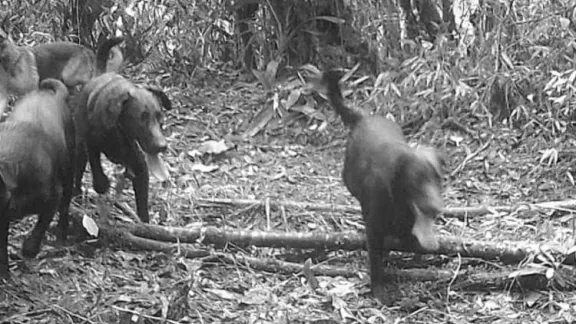Biological monitoring has revealed the presence of 1,500 feral dogs in the Cuxtal Ecological Reserve, a Protected Natural Area located south of Mérida. This reserve provides essential environmental services, including oxygen provision, greenhouse gas capture, climate regulation, water supply, and protection against extreme weather events. It is home to over 800 species of flora and fauna, all of which rely on a healthy environment for survival.
Recently, the reserve reported on social media that at least 1,500 feral dogs have been detected within its boundaries. The report also noted the presence of domestic cats, which the International Union for Conservation of Nature (IUCN) has listed among the world’s 100 worst invasive species.
In September 2024, Raúl Escalante Aguilar, Director of the Environment and Animal Welfare Unit of the Mérida City Council, confirmed evidence of domestic animals attacking wildlife in the Cuxtal Reserve. Affected species include armadillos, coatis (also known as badgers), opossums, deer, and various birds.
Why Are Dogs and Cats a Threat in Natural Areas?
Dogs and cats roaming freely in natural areas pose a significant threat to the ecological balance. They hunt wild animals, leading to the decline of various species, and can transmit diseases such as distemper and rabies. Additionally, their presence displaces wild carnivores like the ocelot and the margay, which are classified as endangered species under the Mexican Official Standard NOM-059-SEMARNAT-2010. These wild carnivores play crucial roles in controlling populations of small and medium-sized prey.
Source: Por Esto




